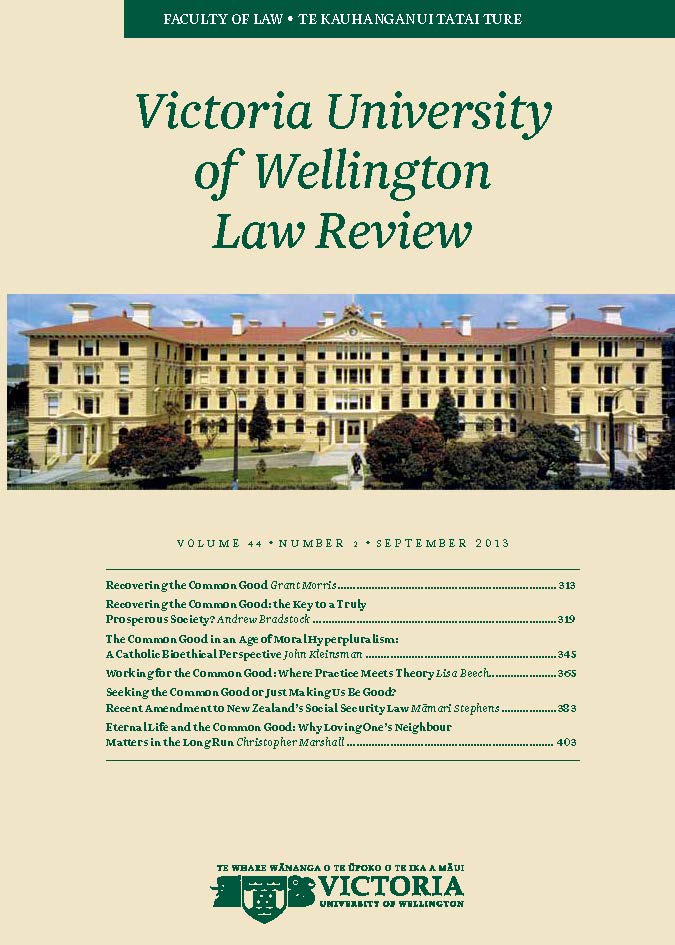Eternal Life and the Common Good: Why Loving One's Neighbour Matters in the Long Run
DOI:
https://doi.org/10.26686/vuwlr.v44i2.4996Abstract
The duty to "love one's neighbour as oneself" has been carried over from the biblical tradition into subsequent moral and legal philosophy, as a helpful way of signalling commitment to the common good. When secular theorists appeal to this principle, they typically strip "love" of its emotional intensity and sacrificial dimensions and reduce the principle of "neighbour-love" to the negative duty of not interfering unduly with the rights and freedoms of others. But if we consider what Jesus understood neighbour-love to involve, as evident particularly in his dialogue with a Jewish lawyer in Luke 10:25-37, an altogether more demanding or thicker conception of the common good emerges.
Downloads
Downloads
Published
How to Cite
Issue
Section
License
Authors retain copyright in their work published in the Victoria University of Wellington Law Review.


